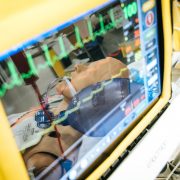3 Must-Haves Technologies In Healthcare
Technology has brought us so many conveniences, before we dive right into the must-have technologies in healthcare, let me take you back a bit. Imagine how we can now video chat with our loved ones on another continent. Long back if you needed to reach someone on another continent you had to go to them through a ship which would sometimes capsize and not reach its destinations. Nowadays tasks that usually take hours are now being done by robotic arms in minutes if not seconds. The technology wave has engulfed many if not all industries in the world and the healthcare industry has not been spared.
in the year 2022, these are must-have technologies in healthcare for a hospital, a health worker’s smartphone, a clinic, a surgery just to name a few:
- e-Consullting Systems – since the advent of email, and e-money, one way or the other, e-consultations were not supposed to be far behind. e-Consulting is usually used not only for consultation services but for patient remote monitoring in some cases, and we must admit, the use of such systems was exacerbated by the COVID-19 pandemic Hospitals, surgeries, and clinics can and will benefit immensely from such systems.
- Artificial Intelligence-Based Medical devices – the advent of x-rays and other medical devices gave birth to so many advanced technologies that are being used in healthcare. Many devices that are connected to the internet, and are smart in terms of making use of artificial intelligence technology are being invented and they have become trailblazers in modern medicine. For example, imagine systems and those heart attack probability predicting devices have saved lives and if possible should be mass-produced and accessible in many parts of the globe
- Wearable Devices – Fitness trackers, wearable ECG monitors, wearable blood pressure monitors, and wearable biosensors even in their infancy have become a must-have technology as millions of these devices are being manufactured in many parts of the globe. Both health workers and patients benefit greatly from these devices which also improve the quality or frequency of patient remote monitoring and help patients know their statistics in some cases, in real-time.
Technology is however without any problems and even though it will make patient management, diagnostic and other things better, we can not deny that it has also brought some unwanted results even in healthcare.



